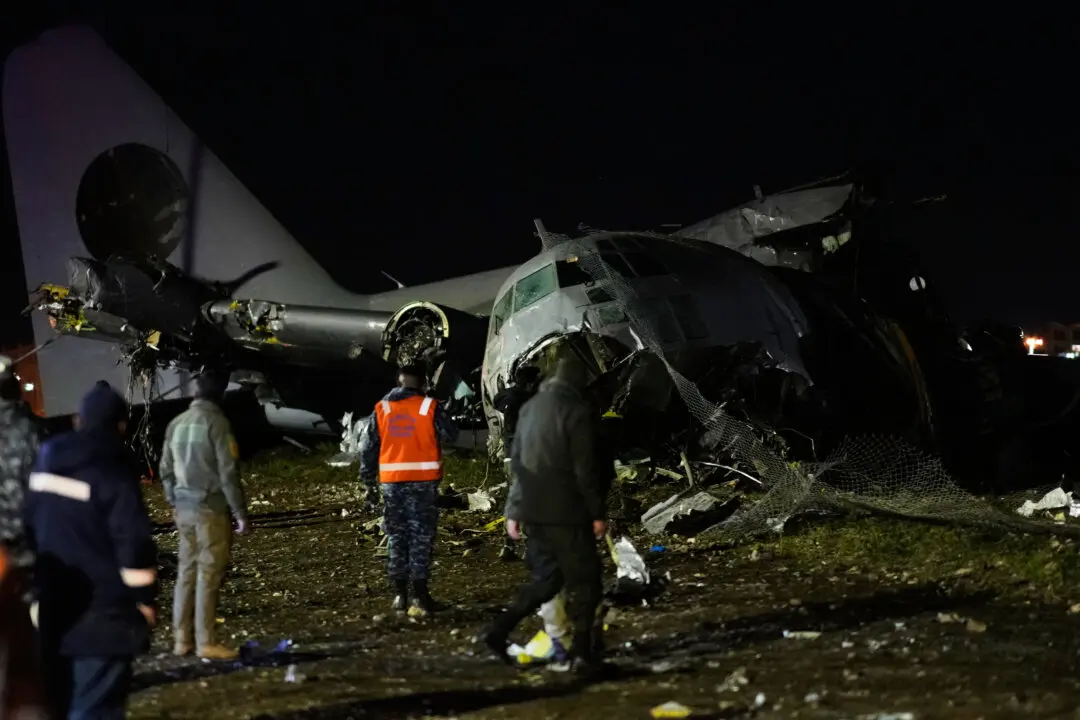KYIV—Russia fired dozens of missiles at Ukrainian energy facilities including hydroelectric power stations on Monday, causing widespread blackouts, mobile phone outages, and reductions in water supplies.
Explosions rocked Kyiv and thick black smoke billowed over the capital in a wave of attacks on Monday morning that Prime Minister Denys Shmyhal said targeted 10 Ukrainian regions and damaged 18 mostly energy-related facilities.





